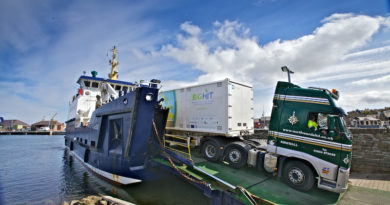
Promoting data cooperation to enhance access to and use of sustainability data
As the world grapples with the challenges of climate change and sustainable development, access to and use of data is more important than ever. From tracking progress towards environmental targets to identifying new opportunities for sustainable growth, data plays a crucial role in our efforts to build a more sustainable future. However, despite its importance, many challenges still exist when it comes to promoting data cooperation and enhancing access to and use of sustainability data. In this article, I will outline some key steps that we can take to overcome these challenges and foster a more data-driven approach to sustainability.
One of the biggest challenges when it comes to promoting data cooperation is overcoming the barriers to sharing data across different organizations and sectors.
This can be a particularly daunting task when it comes to sustainability data, as it often involves sensitive information about natural resources, environmental conditions, and other critical factors. To overcome these barriers, we need to focus on building trust and fostering collaboration through clear legal frameworks.
I am currently in the process of negotiations on Data Act, the landmark piece of legislation that seeks to reorganize the value chains and balance value creation benefits of the nascent data economy. Alongside the already adapted framework legislation, Data Governance Act, EU aims to create a culture of trust and collaboration. Governance should make it easy for organizations to share data and work together to achieve common goals in the field of sustainability. By sharing data, businesses can work together to better solve our climate crisis. Providing access for the user to data generated by the use of the product, opens doors for new ways to use that data for several new players and disruptive ways and with competition to thrive for more innovations.
Public data sets have a lot of information that can be harnessed too. For example, data on the emissions of greenhouse gases from different sectors can help policymakers develop targeted policies and regulations to reduce emissions in the most effective and efficient manner.
Data on the use of natural resources, such as water and land, can also help identify areas where conservation efforts are needed to protect these resources from overuse or degradation. These government-to-business data sets have been opened in previously in Open Data Directive and the Data Governance Act.
In addition to providing valuable information for decision-making, data sharing can also help build trust and collaboration between businesses and governments. In the Data Act in addition to business-to-business access to IoT data we also discuss the role of business-to-government data sharing. I believe Business-to-government data sharing has an important role to play in the tackling climate change. I believe that by working together and sharing data, businesses and governments can show that they are committed to addressing the challenges of climate change and working towards a more sustainable future. Overall, the importance of business-to-government data sharing in tackling climate change cannot be overstated. By providing valuable information and fostering collaboration, data sharing can help support the development of effective policies and actions to reduce greenhouse gas emissions and protect natural resources.
Legislation on the access, use and control rights is not enough. Another key challenge is ensuring that sustainability data is high-quality, accurate and relevant. Too often, data is collected and analyzed in silos, which can lead to inconsistencies and gaps in our understanding of key issues. This can hinder our ability to make informed decisions and take effective action. To address this challenge, we need to focus on improving the quality of sustainability data and making it more accessible and usable. This can be achieved through a variety of means, including investing in better data collection and analysis tools, as well as promoting the use of open data standards and interoperable systems. It is key that the European data economy does not end up existing only in the paper. That is why it is crucial to pay attention to how the standards for the European data economy are constructed. Here I believe the inclusive multi-stakeholder model of the European Data Innovation Board should have a role to play.
In addition to overcoming technical challenges, we also need to focus on the broader cultural and institutional factors that shape our approach to data and sustainability. This includes promoting a more data-driven culture within organizations and institutions, as well as building the capacity of individuals and communities to access, use, and share data.
To do this, we need to invest in education and training programs that teach people the skills they need to work with data and make informed decisions. We also need to support initiatives that promote data literacy and empower communities to use data to drive positive change. Here we should learn from great initiatives like the open Finnish Elements of AI course (elementsofai.com) and adapt these models to teaching about data economy as well. By building the capacity of individuals and communities, we can create a more inclusive and participatory approach to data and sustainability.
Ultimately, promoting data cooperation and enhancing access to and use of sustainability data is not a simple task. It requires a multi-faceted approach that involves overcoming technical barriers, building trust and collaboration, improving data quality, and fostering a more data-driven culture. However, the rewards are significant. By promoting data cooperation, we can improve our understanding of key sustainability issues, see new disruptive innovations with opening access to data sets, identify new opportunities for sustainable growth and deliver for a greener future for Europe and the world.




